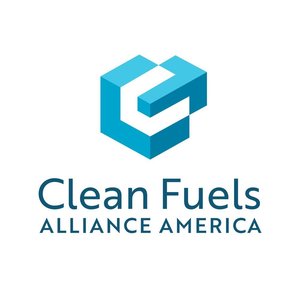Clean Fuels releases Bioheat fuel registered trademark agreement

July 26, 2022
BY Clean Fuels Alliance America
Clean Fuels Alliance America announced on July 25 that it has released for immediate review and execution the newest version of their Bioheat Fuel Trademark License Agreement. This new agreement has been reviewed and developed cooperatively between both Clean Fuels and National Oilheat Research Alliance. The new agreement references Clean Fuels new name as well a subtle revision that helps improve the document for both parties.
To simplify the registration process, a website has been developed where current and new registrants may go to access the agreement for review and execution with Clean Fuels staff. After execution of a completed agreement, registrants will be sent the completed and ready for use digital logo files which include four versions: Bioheat fuel, Bioheat Plus fuel, Bioheat Super Plus fuel and finally Bioheat fuel, “The Evolution of Oilheat.”
“We are excited to roll out this agreement for new and existing licensees that will ensure the proper promotion of Bioheat® fuel,” said Brad Shimmens, director of operations and membership for Clean Fuels. “We appreciate consumers and fuel marketers for their commitment to the only liquid heating fuel that can lower carbon emissions, both improving the environment and human health.”
All questions specific to the proper use of the trademarks can be addressed by contacting Brad Shimmens at Clean Fuels or by phone 800-841-5849.
Bioheat fuel is a blend of biodiesel and ultra-low sulfur heating fuel. A more eco-friendly alternative to both traditional heating fuel and natural gas, Bioheat® fuel can be used in existing home heating fuel systems. Bioheat fuel is available right now and is currently offered in three tiers based on how much biodiesel is in the fuel:
•Blends ranging from 2 percent to 5 percent biodiesel (B2–B5) are referred to as Bioheat fuel.
Advertisement
•Blends ranging from 6 percent to 20 percent biodiesel (B6–B20) are referred to as Bioheat Plus fuel.
•Blends 21 percent – 100 percent biodiesel are referred to as Bioheat Super Plus fuel.
Advertisement
Related Stories
CoBank latest quarterly research report highlights current challenges facing the biobased diesel industry. The report cites policy uncertainty and trade disruptions due to tariff disputes as factors impacting biofuel producers.
The U.S. EIA on April 15 released its Annual Energy Outlook 2025, which includes energy trend projections through 2050. The U.S. DOE, however, is cautioning that the forecasts do not reflect the Trump administration’s energy policy changes.
The Michigan Advanced Biofuels Coalition and Green Marine are partnering to accelerating adoption of sustainable biofuels to improve air quality and reduce GHG emissions in Michigan and across the Great Lakes and St. Lawrence Seaway.
EIA reduces production forecasts for biobased diesel, increases forecast for other fuels, including SAF
The U.S. Energy Information Administration reduced its 2025 forecasts for renewable diesel and biodiesel in its latest Short-Term Energy Outlook, released April 10. The outlook for “other biofuel” production, which includes SAF, was raised.
FutureFuel Corp. on March 26 announced the restart of its 59 MMgy biodiesel plant in Batesville, Arkansas. The company’s annual report, released April 4, indicates biodiesel production was down 24% last year when compared to 2023.
Upcoming Events










